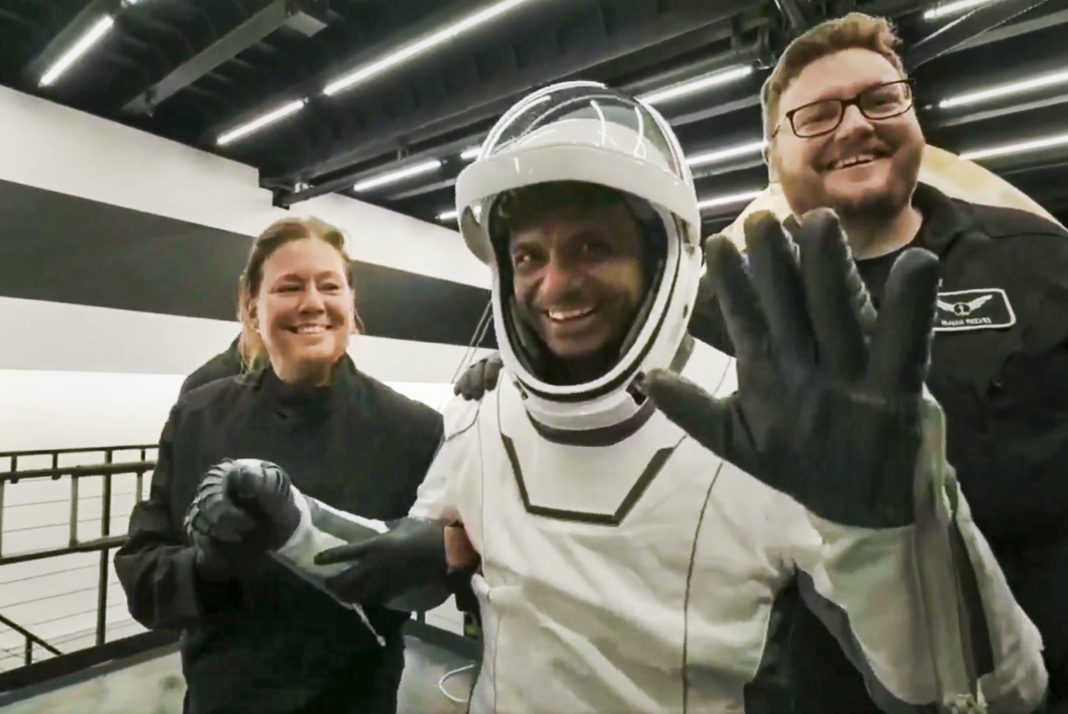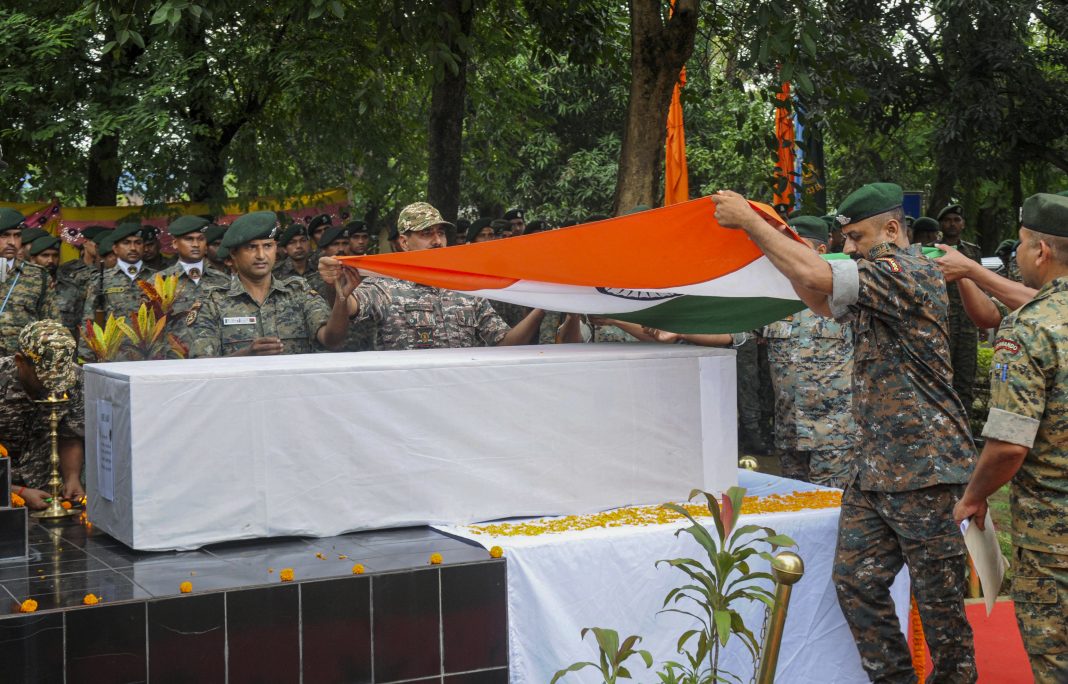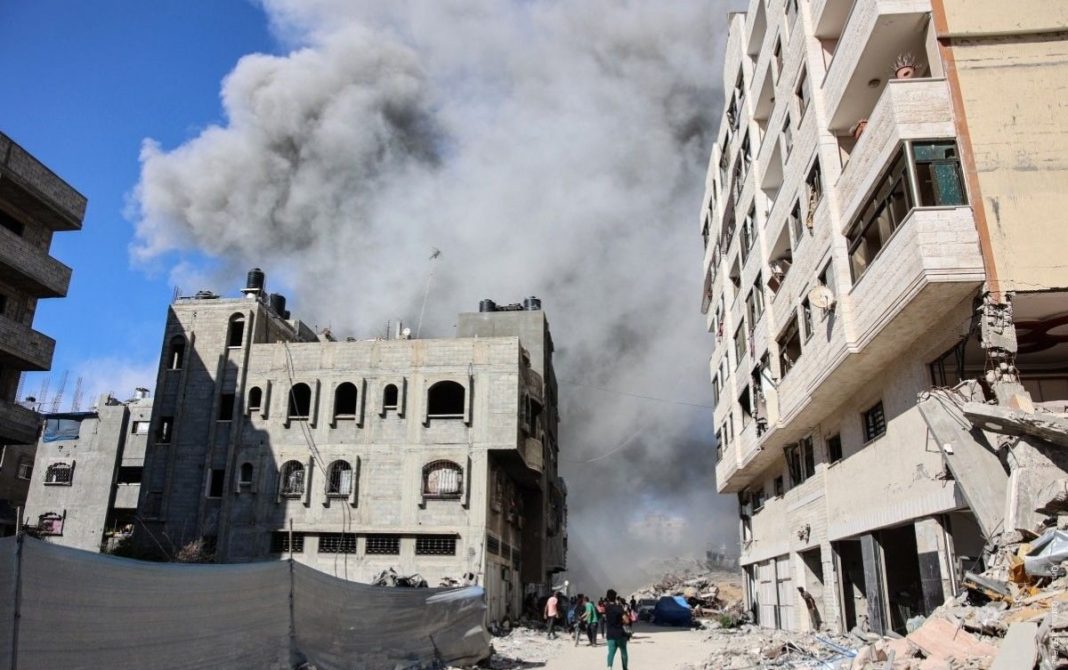
New Delhi, July 16: The Union Cabinet on Wednesday passed a resolution to congratulate Indian astronaut Shubhanshu Shukla for the successful completion of his historic 18-day mission aboard the International Space Station and asserted that it heralded a new chapter in India’s space programme.

The Cabinet, at a meeting chaired by Prime Minister Narendra Modi, adopted the resolution that termed Shukla’s space journey as a moment of pride, glory and joy for the entire nation and one that represented infinite aspirations of India.
“The Cabinet joins the nation in celebrating the return of Group Captain Shubhanshu Shukla to Earth, following the successful completion of his historic 18-day mission aboard the International Space Station,” Information & Broadcasting Minister Ashwini Vaishnaw said at a cabinet briefing as he read out the resolution.
Shukla, a Group Captain in the Indian Air Force, and three other astronauts of the private Axiom-4 mission returned to earth on Tuesday after spending 20 days in space of which 18 days were spent at the International Space Station (ISS).

“Group Captain Shubhanshu Shukla’s mission is not just a personal triumph – it is a beacon of inspiration for a new generation of young Indians. It will ignite the scientific temper, fuel curiosity, and inspire countless youth to pursue careers in science and embrace innovation.
The Cabinet reaffirms its firm conviction that this mission will energise the national resolve to build Viksit Bharat-a Developed India-by 2047, as envisioned by the Prime Minister,” the resolution said.
It also said the successful mission significantly elevates India’s global standing in space exploration.
“It is a vital stepping stone towards India’s own human spaceflight ambition, including the Gaganyaan and the Bharatiya Antariksha Station. It reaffirms India’s resolve to be at the forefront of human space exploration,” it said.

The Axiom-4 mission was launched on June 25, with Shukla as mission pilot. He became the first Indian to travel to the ISS, which the resolution termed as a “watershed moment”.
“It heralds a new chapter in India’s space programme and gives a golden glimpse of our future space programme,” it said.
The Cabinet commends the Indian Space Research Organisation and the entire community of our scientists and engineers whose relentless efforts have made this achievement possible, it said.
During his time aboard the International Space Station, Shukla worked seamlessly with fellow members of the Axiom-4 Crew and Expedition 73, embodying India’s growing leadership in international space cooperation.
He conducted pioneering experiments in microgravity on subjects such as muscle regeneration, algal and microbial growth, crop viability, microbial survivability, cognitive performance in space, and the behaviour of cyanobacteria.
“These studies will deepen global understanding of human spaceflight and microgravity science, and provide critical inputs for India’s future missions,” the resolution read.
The Cabinet also applauded the visionary and decisive leadership of Prime Minister Modi, whose strategic foresight, unwavering belief in India’s space potential, and consistent guidance have enabled the country to chart new frontiers and emerge as a leader among spacefaring nations.
“The Cabinet also recalls with pride India’s recent landmark achievements, including the historic landing of Chandrayaan-3 near the South Pole of the Moon on 23rd August 2023, a day etched in history as India’s National Space Day,” the resolution said.
It noted that India’s Aditya-L1 Mission launched in 2023 has significantly enhanced humanity’s understanding of solar activity.
These feats reflect the spirit of scientific excellence and national self-reliance.
Through sustained reforms in the space sector, the government has unlocked unprecedented growth in India’s space economy. The emergence of around 300 new start-ups in this sector has not only led to job creation at a large scale, but also nurtured a vibrant ecosystem of innovation, entrepreneurship and technology-driven development, it said. (PTI)




